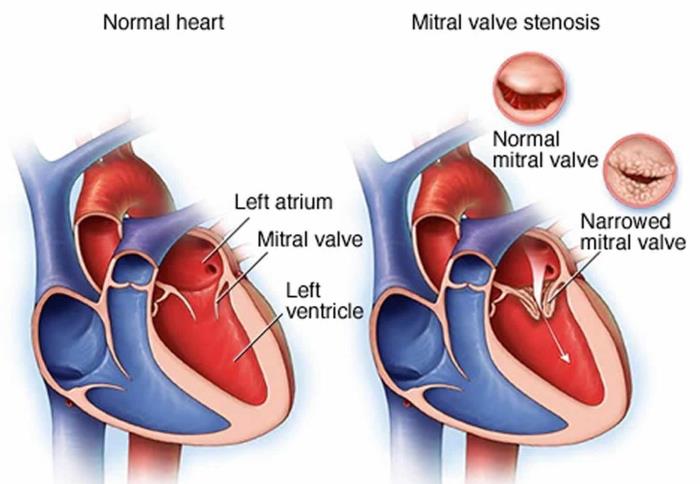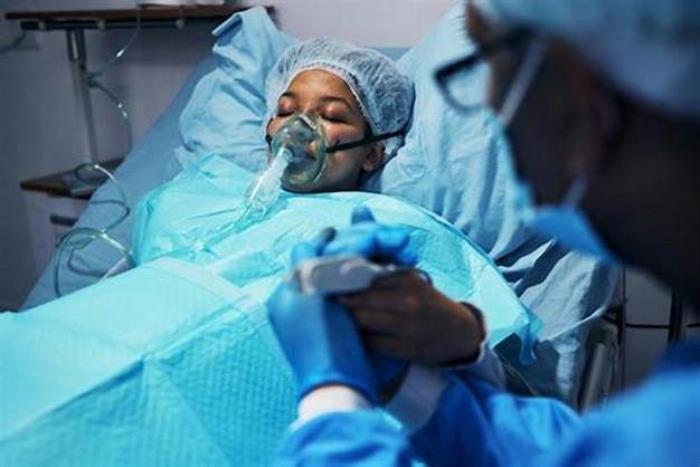Mitral Valve Replacement (MVR) surgery is a critical procedure designed to treat mitral valve dysfunction, whether due to stenosis or regurgitation. The success of MVR surgery is influenced by a combination of factors that ensure optimal outcomes for patients. These factors range from the patient's overall health and the type of valve used, to the experience of the surgical team and the careful management of pre-existing health conditions. Understanding these key elements can help patients and healthcare providers collaborate effectively to achieve the best possible results and ensure a smoother recovery process.
Patient's Age and Overall Health Condition
A patient’s age and general health play a significant role in determining the success of Mitral Valve Replacement surgery. Younger patients typically have better outcomes due to stronger immune systems and the ability to recover more rapidly from surgery. However, older patients may face additional risks due to age-related changes in the heart and other organs, which can complicate the procedure or recovery. Overall health conditions, such as the presence of diabetes, hypertension, or obesity, can also impact surgical success. These factors affect how well the body handles the surgery and can influence long-term results, highlighting the importance of pre-surgical health optimization.
The Severity of Mitral Valve Disease Prior to Surgery
The severity of mitral valve disease before surgery is a critical factor influencing the success of MVR surgery. Patients with severe mitral valve dysfunction, characterized by significant valve leakage (regurgitation) or narrowing (stenosis), often experience more complex procedures and longer recovery times. Early intervention tends to result in better surgical outcomes, as less severe damage to the valve and surrounding heart structures allows for more straightforward repair or replacement. In contrast, more advanced stages of the disease may lead to complications, such as damage to the heart muscle, which could affect the overall success of the surgery. Timely treatment plays a key role in improving surgical prognosis.

Type of Mitral Valve Replacement: Biological vs. Mechanical Valves
The type of mitral valve chosen for replacement—biological or mechanical—can influence the success and longevity of MVR surgery. Biological valves, typically made from animal tissue, are often preferred for older patients as they do not require lifelong blood thinners. However, they may need to be replaced after 10 to 15 years. Mechanical valves, on the other hand, are durable and can last a lifetime but require patients to take blood thinners indefinitely to prevent blood clots. The decision between biological and mechanical valves depends on the patient's age, lifestyle, and risk factors, and a well-informed choice can significantly impact the long-term success of the surgery.
The Skill and Experience of the Surgical Team
The experience and expertise of the surgical team are essential components in determining the success of Mitral Valve Replacement surgery. Highly skilled cardiac surgeons who specialize in valve replacement procedures have a lower risk of complications and better outcomes. The surgical team's ability to navigate complexities during the operation, address unexpected challenges, and perform the procedure with precision is a direct reflection of their experience and training. Additionally, a multidisciplinary approach involving anesthesiologists, nurses, and cardiologists ensures comprehensive care, which is crucial for optimal recovery and long-term health after the surgery.
Pre-Surgery Preparation and Risk Assessment
Effective pre-surgery preparation and risk assessment are fundamental for a successful Mitral Valve Replacement procedure. This phase involves a thorough evaluation of the patient's overall health, including diagnostic tests like echocardiograms, CT scans, and blood work. The goal is to assess the severity of the valve disease, the function of the heart, and any potential risks associated with surgery, such as blood clotting disorders or infections. By identifying and addressing any pre-existing issues before surgery, healthcare providers can minimize the chances of complications during and after the procedure. Proper pre-surgery preparation ensures the patient is in the best possible condition to undergo the procedure, leading to better recovery and long-term success.
The Role of Pre-existing Health Conditions in Surgery Success
Pre-existing health conditions play a crucial role in determining the success of Mitral Valve Replacement surgery. Conditions such as coronary artery disease, hypertension, diabetes, and lung disease can complicate both the surgery itself and the recovery process. Managing these conditions prior to surgery is essential to reduce surgical risks. For example, controlling blood pressure and blood sugar levels can lower the risk of post-operative complications like infections or heart attacks. In some cases, additional treatments or medications may be required to stabilize the patient before surgery.
How Blood Pressure and Heart Function Affect Recovery
Blood pressure and heart function significantly influence recovery after mitral valve replacement surgery. Uncontrolled high blood pressure can strain the heart and impede recovery, while low blood pressure can reduce blood flow to vital organs. Managing blood pressure through medications and lifestyle changes is critical for a successful recovery and long-term heart health.
The Importance of a Properly Managed Anesthesia Plan
Anesthesia management is crucial for mitral valve replacement surgery. Tailoring anesthesia to the patient's health condition minimizes risks during the procedure and aids in smoother recovery. Collaboration between anesthesiologists and the surgical team ensures proper dosing, which is especially important for patients with existing heart conditions.

Timing of the Surgery: Why Early Intervention Matters
Early intervention in mitral valve replacement surgery can prevent further heart damage and reduce complications. Delaying surgery increases the risk of heart failure and other severe outcomes, making timely surgical intervention essential for optimal recovery and long-term heart health.
Impact of Post-Surgery Rehabilitation on Long-Term Success
Post-surgery rehabilitation is key to ensuring long-term success after mitral valve replacement. It includes physical therapy and lifestyle changes that help restore strength, improve mobility, and prevent complications such as blood clots. Rehabilitation also supports cardiovascular wellness and enhances the recovery process.
The Role of Post-Operative Care in Ensuring Recovery
Post-operative care is essential for a successful recovery. This includes monitoring vital signs, managing medications, and ensuring proper wound care to prevent infection. Regular follow-up visits allow for early detection of complications and adjustments to the treatment plan, facilitating a smooth recovery.
How Medications Affect the Outcome of Mitral Valve Replacement
Medications such as blood thinners and blood pressure control drugs play a critical role in recovery. Properly managing these medications helps prevent complications like blood clots or arrhythmias. Adhering to prescribed treatments ensures the best possible surgical outcome.
Lifestyle Changes and Their Impact on Recovery and Success
Post-surgery lifestyle changes, including a heart-healthy diet, regular exercise, and stress management, are essential for recovery. These changes help manage blood pressure, improve heart function, and reduce the risk of complications, supporting long-term success after mitral valve replacement.
Monitoring and Managing Complications After Surgery
Monitoring for complications such as infections, blood clots, or arrhythmias is crucial after surgery. Regular tests and follow-up appointments help detect and manage these issues early, preventing serious problems and enhancing the chances of a successful recovery.
The Effect of Surgical Techniques on Success Rates
The surgical approach chosen for mitral valve replacement can impact recovery times and success rates. Minimally invasive techniques typically offer faster recovery and fewer risks, but they are not suitable for all patients. The choice of technique depends on individual patient health and the nature of the valve disease.
The Role of Advanced Imaging in Planning the Surgery
Advanced imaging technologies, such as echocardiograms and MRIs, play a crucial role in planning mitral valve replacement. These tools provide detailed images of the heart’s structure, helping surgeons choose the best approach for surgery, improving precision, and enhancing outcomes.
The Influence of Family History and Genetics on Outcomes
Genetic factors and family history of heart disease can influence the risk of complications and recovery after mitral valve replacement. Understanding these risks allows doctors to tailor treatment plans, monitor patients more closely, and improve long-term outcomes.
The Patient's Commitment to Recovery and Follow-Up Care
The patient’s active participation in recovery, including attending follow-up appointments, adhering to rehabilitation programs, and managing medications, is vital to ensuring the success of mitral valve replacement. Ongoing care helps prevent complications and supports long-term heart health.
How to Monitor Heart Health After Mitral Valve Replacement Surgery
Learn how to monitor your heart health after mitral valve replacement surgery, including regular check-ups and lifestyle adjustments to ensure optimal recovery.
Conclusion: Maximizing Success Through Comprehensive Care
The success of mitral valve replacement surgery depends on comprehensive care, including timely surgery, rehabilitation, and close monitoring. By addressing factors like blood pressure, heart function, and lifestyle changes, patients can improve recovery outcomes and enjoy long-term heart health.
Best Mitral Valve Replacement Surgery in India
The Best Mitral Valve Replacement Surgery in India is designed to restore heart function in patients with mitral valve disease, providing effective solutions to improve quality of life and heart health.
Best Mitral Valve Replacement Surgeons in India
The Best Mitral Valve Replacement Surgeons in India are skilled in valve replacement techniques, providing personalized care to achieve successful outcomes for patients with mitral valve conditions.
FAQ
How does my age influence the success of mitral valve replacement surgery?
Age can affect recovery time and the risk of complications, with younger patients often experiencing faster recovery and fewer issues. However, surgical advancements have made the procedure safer for people of all ages.
What type of valve should I choose for the best long-term outcome?
The choice between a biological or mechanical valve depends on factors such as age, lifestyle, and medical history. Biological valves generally require less maintenance, while mechanical valves last longer but require blood thinners.
How does pre-surgery health affect the results of the surgery?
Pre-surgery health is crucial. Well-controlled health conditions, such as blood pressure and diabetes, improve the likelihood of a successful surgery and smoother recovery.
How can I improve my chances of a successful recovery after mitral valve replacement?
Commitment to rehabilitation, adhering to medications, maintaining a healthy diet, and managing risk factors like blood pressure can all improve recovery chances.
What are the common complications that can affect the success rate of the surgery?
Complications include infection, blood clots, arrhythmias, and stroke. Early detection and management of these issues are key to improving outcomes.